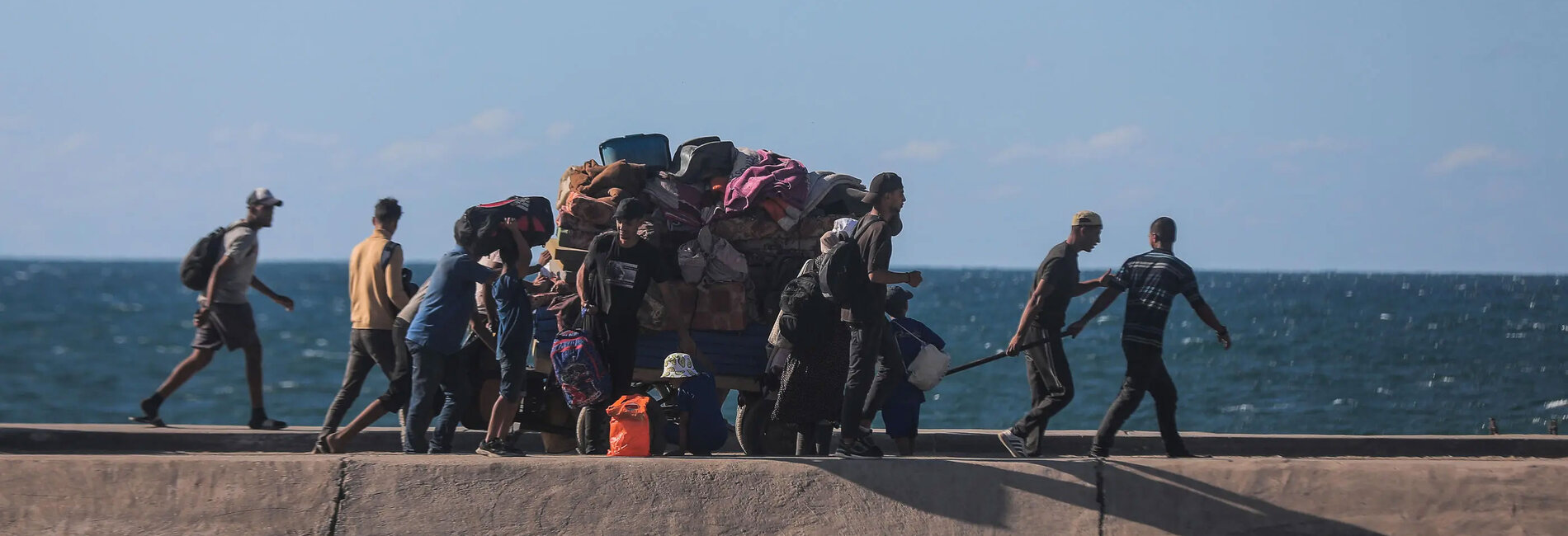UN Relief Chief calls for renewed commitment to peace and aid delivery in Gaza
Statement on Gaza by Tom Fletcher, Under-Secretary-General for Humanitarian Affairs and Emergency Relief Coordinator
Cairo, 15 October 2025
Two days ago, leaders from across the world came together in Sharm el Sheikh to endorse President Trump’s peace initiative.
It was clear from my discussions with them there that this is a moment of great but precarious hope. It is also clear from the public response to the progress that Palestinians, Israelis and people across the region want this peace to take hold.
So we must not fail to see through in full the implementation of the agreements made. Earlier this week, we were able to kick off our humanitarian scale-up after months of frustration and blockages. Food, medicine, fuel, water, cooking gas and tents got through to those who need them. We made progress clearing roads and reopening bakeries. We shared in the joy and relief of families reunited.
But yesterday we faced further setbacks to that implementation. We are now tested to see whether we can ensure that these do not prevent the progress on which President Trump, the UN Secretary-General and so many leaders have insisted.
As Hamas have agreed, they must make strenuous efforts to return all the bodies of deceased hostages, urgently. I am also gravely concerned by the evidence of violence against civilians in Gaza.
As Israel has agreed, they must allow the massive surge of humanitarian aid – thousands of trucks a week – on which so many lives depend, and on which the world has insisted. We need more crossings open and a genuine, practical, problem-solving approach to removing remaining obstacles. Throughout this crisis, we have insisted that withholding aid from civilians is not a bargaining chip. Facilitation of aid is a legal obligation.
We have set out a 60-day plan for a massive surge in lifesaving aid and I have remained in the region this week to coordinate it. I thank those who signed the agreements in Sharm el Sheikh for being unequivocal in their backing for this mission.
I pay tribute to colleagues from across the humanitarian community, especially our teams in Gaza, the West Bank, Egypt, Jordan and the region, who are determined to save lives, no matter the obstacles. We are clear that we will deliver neutral, principled aid with maximum efficiency, and in a way that ensures the support reaches civilians, not armed groups. We will not accept any interference with our aid distribution.
No one expected this to be straightforward, nor easy. There will be more bumps in the road. We must restore trust and hope through action. It is essential that we do not squander the immense progress made, and the leadership shown. The test of these agreements is that families are safe and reunited, children fed, sheltered and back in school, and that Palestinians and Israelis can look forward with greater security, justice and opportunity. The world has failed so many times before – we must not fail this time.










